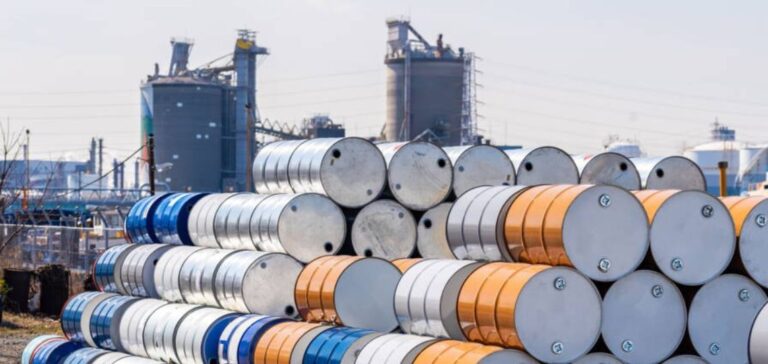Recent data from the US Energy Information Agency (EIA) show a significant contraction in crude oil inventories. This reduction comes despite a rise in US production to 13.3 million barrels per day, an all-time record. Analysts were expecting inventories to rise by a million barrels, but the reality exceeded forecasts, underlining the current dynamics of the US oil market.
US refinery activity is a key factor in this decline. Using 95.4% of their capacity, a level not seen for six years at this time, refineries offset the reduction in exports and the increase in imports. This operational efficiency was crucial in absorbing excess production and significantly reducing commercial inventories.
Impact of Refineries and Strategic Reserves
The ramp-up of refineries has played a decisive role in managing oil stocks. At the same time, Strategic Petroleum Reserves (SPR) increased slightly by 500,000 barrels. This strategy of gradual replenishment of the SPR, after withdrawals to stabilize oil prices, reflects the caution of the US government.
Since July 2023, over 26 million barrels have been bought back to bolster these strategic reserves. The aim of this policy is to ensure long-term stability in black gold prices and prevent future disruptions.
Demand and consumption of refined products
On the demand side, refined products delivered to the US market fell slightly by 1.6%. Nevertheless, gasoline consumption remains robust, exceeding the nine-million-barrel-per-day threshold. Distillates, including diesel and refined industrial products, recorded significant declines of 7% and 6% respectively.
These fluctuations are partly attributed to the effect of the long weekend of July 4, a period traditionally marked by intense road travel in the United States. This temporary increase in demand helped reduce oil and gasoline inventories.
Market reactions and outlook
The release of EIA data had a positive impact on oil prices. West Texas Intermediate (WTI) rose by 0.71% to $81.99 a barrel. This reaction underlines the market’s sensitivity to changes in inventories and refinery performance.
In the medium term, the ability of US refineries to maintain a high level of activity will be decisive for oil inventory management. Strategies for replenishing strategic reserves and monitoring demand for refined products will continue to influence oil market dynamics.
The evolution of energy policies and production capacities will play a crucial role in market balance. Industry players must remain vigilant to fluctuations in demand and government intervention to stabilize prices and ensure a steady supply of oil.





















